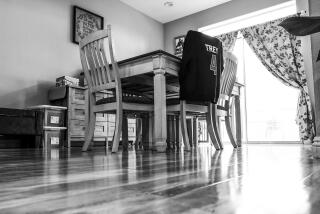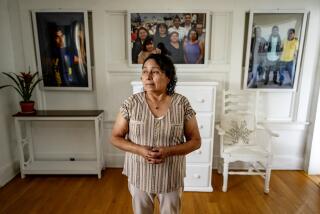Judge Orders Testing of 3 Teen-Age Killers : Crime: Reports will determine whether slayers of Stuart A. Tay receive life in prison or lesser sentences in the California Youth Authority.
- Share via
SANTA ANA — A judge on Friday ordered three teen-agers to undergo diagnostic testing at the California Youth Authority before they are sentenced for their roles in the 1992 New Year’s Eve murder of honor student Stuart A. Tay.
Orange County Superior Court Judge Kathleen E. O’Leary will use the reports to determine whether the teen-agers should be sentenced as adults--and possibly face life in prison--or as teen-agers, in which case they could be released when they turn 25.
The three teen-agers, Abraham Acosta, 17, of Buena Park, and Kirn Kim, 18, and Mun Bong Kang, 18, both of Fullerton, were among five youths who killed Tay because they believed he was going to double-cross them in a planned robbery of a computer parts dealer. The robbery never took place.
Kim faces a possible sentence of 25 years to life in prison, while Acosta and Kang face maximum terms of life in prison with no chance of parole.
Tay, 17, was beaten with baseball bats and a sledgehammer before his assailants forced him to drink rubbing alcohol and taped his nose and mouth shut. He was then placed in a shallow grave in a Buena Park back yard.
On Monday, Robert Chan, 19, a onetime candidate for class valedictorian at Sunny Hills High School, was sentenced to life in prison without parole for orchestrating the murder that involved four other teen-age accomplices.
The fifth teen-ager, Charles Choe, 18, of Fullerton admitted his role in the slaying and agreed to be the prosecution’s chief witness against his former friends. In exchange, the Orange County district attorney’s office prosecuted him as a juvenile, meaning Choe will be released from the California Youth Authority when he turns 25.
The case gained nationwide attention as an example of juvenile violence and was especially shocking because most of the defendants were college-bound students who came from supportive homes.
More to Read
Sign up for Essential California
The most important California stories and recommendations in your inbox every morning.
You may occasionally receive promotional content from the Los Angeles Times.














